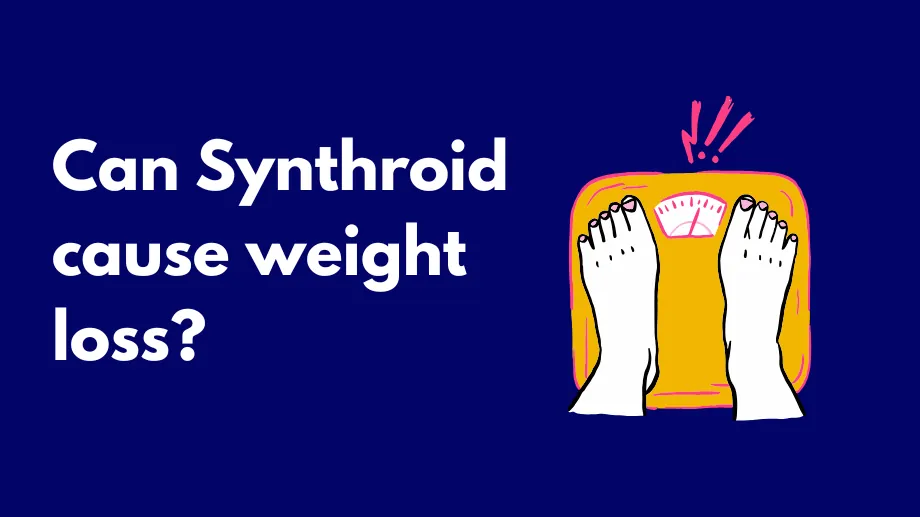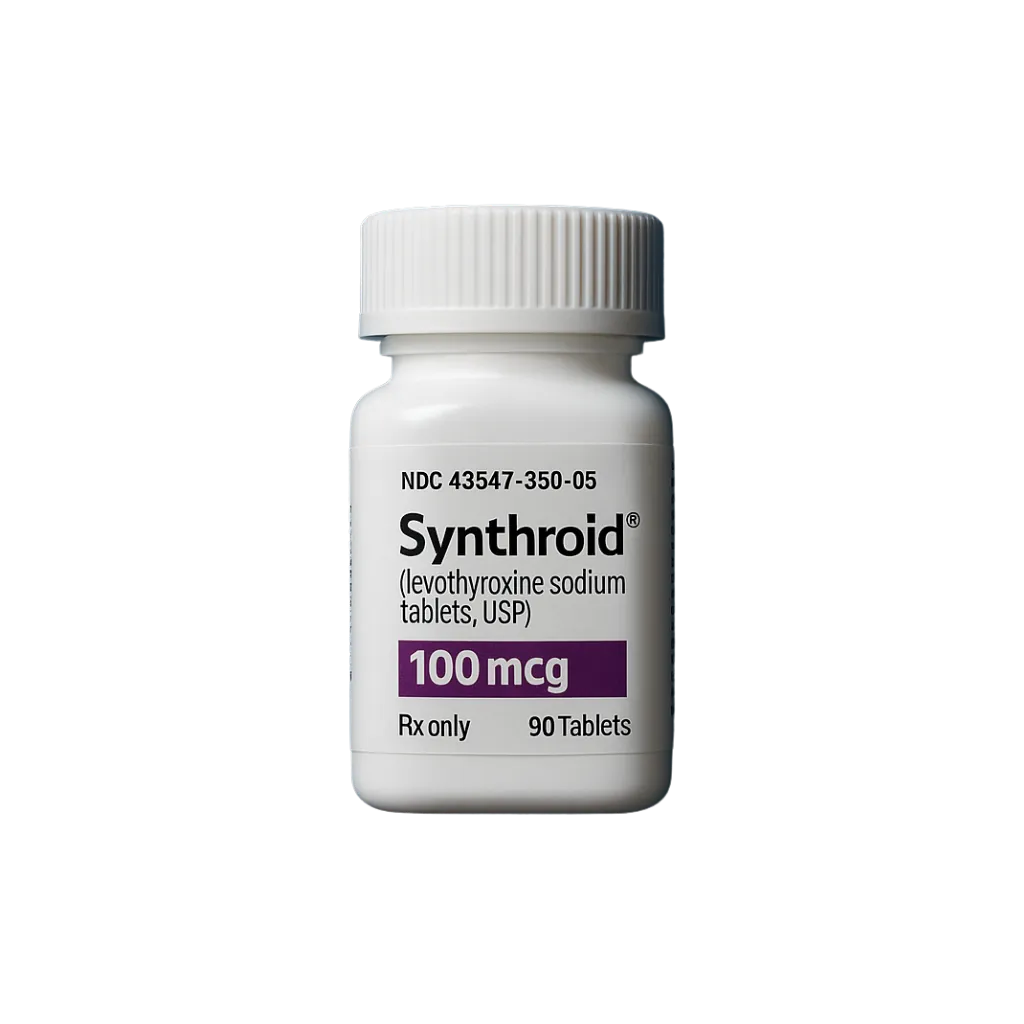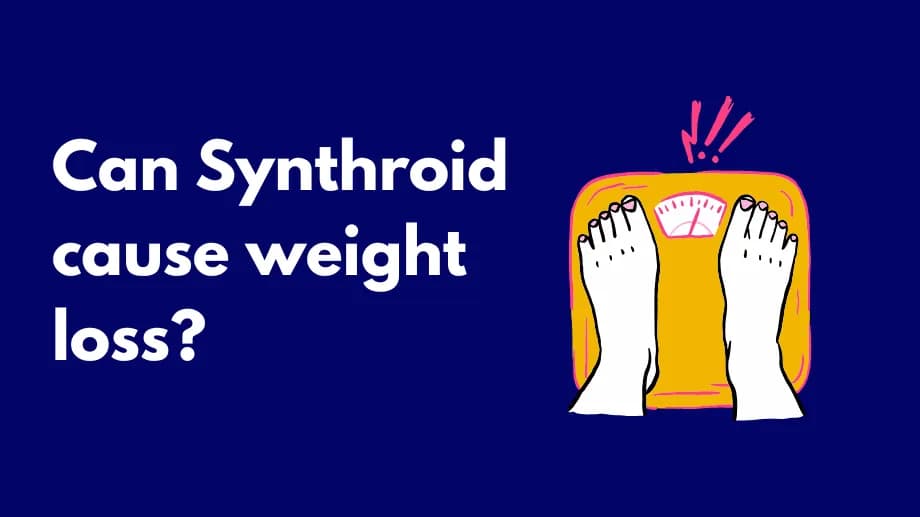Can Synthroid cause weight loss?

Synthroid is a synthetic thyroid hormone used to treat hypothyroidism and certain cases of thyroid cancer. Correct, consistent dosing is essential to maintain stable thyroid levels and avoid complications.
When and How to Take It
- Take once daily on an empty stomach, ideally 30–60 minutes before breakfast.
- Use only water; avoid coffee, juice, or other beverages until after your first meal.
- If morning dosing is not possible, take in the evening at least 3–4 hours after your last meal.
- If you miss a dose, take it as soon as you remember unless it is within a few hours of your next scheduled dose. Do not double up.
Medications and Supplements to Separate by ≥4 Hours
- Calcium supplements or antacids containing aluminum, calcium, or magnesium
- Iron supplements
- Cholesterol‑lowering agents (cholestyramine, colesevelam, colestipol)
- Sucralfate
- Sevelamer or lanthanum
- Proton pump inhibitors (omeprazole, lansoprazole, esomeprazole, rabeprazole)
- Simethicone
- Multivitamins or herbal products containing biotin
- High‑fiber supplements or soy products
Dietary Considerations
Certain foods may reduce absorption and should be eaten several hours after your medication:
- Walnuts or high‑fiber foods
- Grapefruit juice
- Soybean flour or soy‑based formulas
- Cottonseed meal
Side Effects
Common (often from excessive dosing)
- Headache
- Palpitations or irregular heartbeat
- Nausea or vomiting
- Anxiety, irritability, tremors
- Insomnia
- Weight changes
- Hair thinning
Serious (seek immediate help)
- Severe chest pain or shortness of breath
- Signs of heart failure (swelling of ankles, extreme fatigue)
- Allergic reactions (hives, swelling of face or throat, difficulty breathing)
Warnings and Precautions
- Avoid use for weight loss or obesity treatment
- Inform your provider if you have adrenal insufficiency, heart disease, diabetes, low bone density, or pituitary/kidney disorders
- Monitor thyroid function regularly to guide dose adjustments
Shop Medications
Dose Adjustments and Monitoring
Initial dosing is individualized based on age, weight, cardiac status, and the severity of hypothyroidism. Typical adjustments are 12.5–25 mcg every 4–8 weeks until the target thyroid‑stimulating hormone (TSH) level is reached. Lower starting doses and slower titrations are recommended for older adults and those with heart disease.
Can Synthroid Cause Weight Loss?
Weight gain is common with hypothyroidism (low thyroid function). Synthroid replaces deficient thyroid hormone and often leads to modest weight loss, primarily of excess water retained during hypothyroidism.
The American Thyroid Association notes that patients may lose up to 10% of their body weight after starting thyroid replacement, but this is mainly water weight.
Synthroid carries a boxed warning against its use for obesity or routine weight loss. In people with normal thyroid function, standard replacement doses do not promote weight loss, and excessive dosing can cause serious adverse effects.
When to Expect Weight Changes
After finding and stabilizing on the therapeutic dose, mild weight loss typically appears around 3–6 months. Most of the early change reflects fluid normalization.
How Synthroid Works
Levothyroxine sodium is a synthetic form of the T4 hormone. Thyroid hormones regulate metabolism, body temperature, and many other processes. Restoring normal levels corrects the slowed metabolism of hypothyroidism.
Drug Interactions
Tell your provider about all other medications. Avoid taking these within 4 hours of Synthroid:
- Other thyroid products (liothyronine, desiccated thyroid, etc.)
- Calcium carbonate
- Cholestyramine, colesevelam, colestipol
- Iron supplements
- Sucralfate
- Sevelamer, lanthanum
- Estrogen
- Sodium polystyrene sulfonate
- Proton pump inhibitors
- Simethicone
- Antacids with aluminum or magnesium
- Biotin (interferes with lab tests)
What Your Provider Needs to Know
- Adrenal gland disorders
- Thyrotoxicosis or thyroid nodules
- Heart disease or history of cardiovascular events
- Diabetes or anemia
- Osteoporosis or pituitary/kidney disease
- Pregnancy or breastfeeding status
Sources
- American Thyroid Association guidelines, 2014
- Liwanpo L., et al. Conditions and drugs interfering with thyroxine absorption, 2009
- Synthroid (levothyroxine sodium) Prescribing Information, AbbVie, 2024
- Thyroid and Weight, American Thyroid Association
- Karimifar M., et al. Effects of levothyroxine on bone loss, 2014





